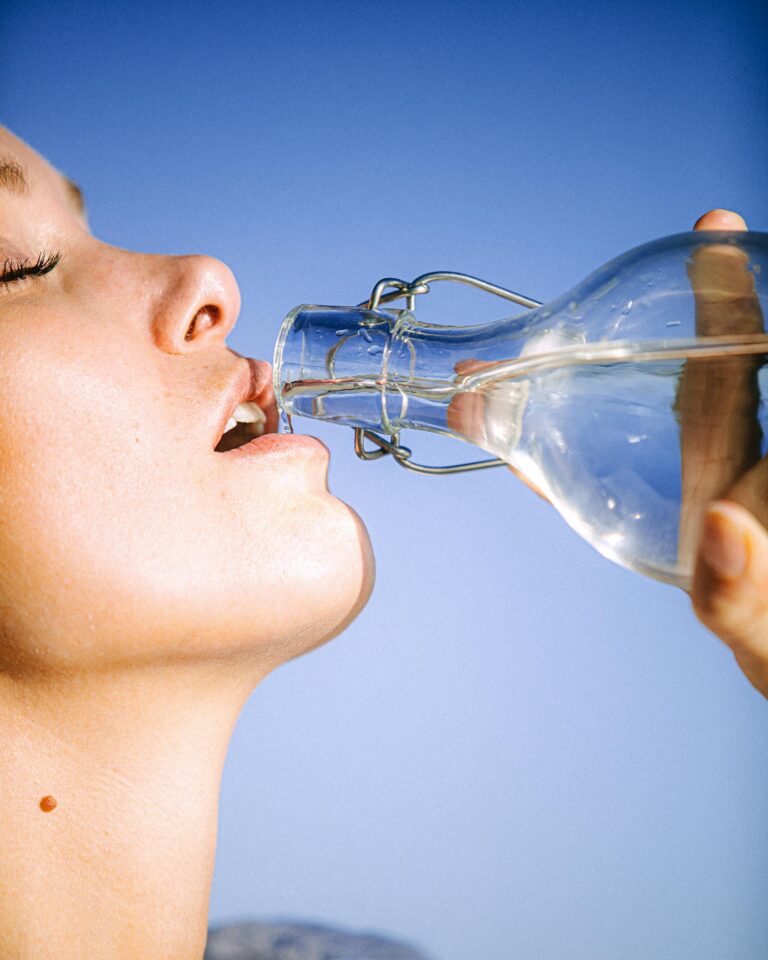Water is the essence of life, making up about 60% of the human body and playing a crucial role in nearly every bodily function. Despite its importance, many people do not drink enough water daily. Understanding the role of hydration in health can help us appreciate the necessity of maintaining proper fluid intake.

Why Hydration is Essential
- Regulates Body Temperature: Water helps regulate body temperature through sweating and respiration. When we are well-hydrated, our bodies can efficiently release heat through sweat, keeping us cool.
2. Supports Digestion and Nutrient Absorption: Water is vital for digestion. It aids in breaking down food so that nutrients can be absorbed more effectively. Without adequate water, our bodies struggle to absorb essential vitamins and minerals.
3. Promotes Cardiovascular Health: Blood is over 90% water, and proper hydration ensures that blood can flow easily, delivering oxygen and nutrients to cells. Dehydration can make blood thicker and more difficult to pump, potentially leading to cardiovascular strain.
4. Keeps Joints Lubricated: Water is a key component of synovial fluid, which lubricates and cushions joints, reducing friction and pain during movement.
5.Detoxifies the Body: Water helps flush out toxins and waste products through urine, sweat, and bowel movements. Proper hydration ensures that kidneys function efficiently in eliminating waste from the body.
6. Maintains Skin Health: Hydrated skin is more elastic and less prone to dryness and wrinkles. Drinking enough water can help maintain a healthy, glowing complexion.
7.Boosts Energy Levels and Cognitive Function: Dehydration can lead to fatigue, confusion, and reduced cognitive function. Staying hydrated helps maintain energy levels and mental clarity.
How Much Water Do You Need?
The amount of water each person needs can vary based on factors like age, gender, climate, and activity level. A common recommendation is the “8×8 rule” – eight 8-ounce glasses of water a day – but this isn’t one-size-fits-all. Listening to your body and drinking when you’re thirsty is a good practice. Additionally, foods with high water content, like fruits and vegetables, can contribute to your hydration needs.
Signs of Dehydration
Recognizing the signs of dehydration is crucial for maintaining health:
- Thirst: A clear signal that your body needs more water.
- Dark Yellow Urine: Pale urine typically indicates adequate hydration.
- Dry Mouth and Skin: Signs that your body needs more fluids.
- Fatigue and Dizziness: Dehydration can lead to low blood pressure and reduced blood flow to the brain.
- Headaches: Often a sign that you’re not drinking enough water.
Tips for Staying Hydrated
- Carry a Water Bottle: Having water readily available can remind you to drink throughout the day.
- Set Reminders: Use your phone or watch to remind you to drink water regularly.
- Eat Hydrating Foods: Incorporate fruits and vegetables with high water content, such as cucumbers, watermelon, and oranges.
- Monitor Your Urine: Aim for pale yellow urine, which indicates proper hydration.
- Drink Water Before Meals: This can help with digestion and also prevent overeating.
Conclusion
Hydration is fundamental to maintaining optimal health. By understanding the critical roles water plays in our bodies and adopting strategies to stay hydrated, we can improve our overall well-being and prevent the adverse effects of dehydration. So, grab that water bottle, take a sip, and toast to your health!
